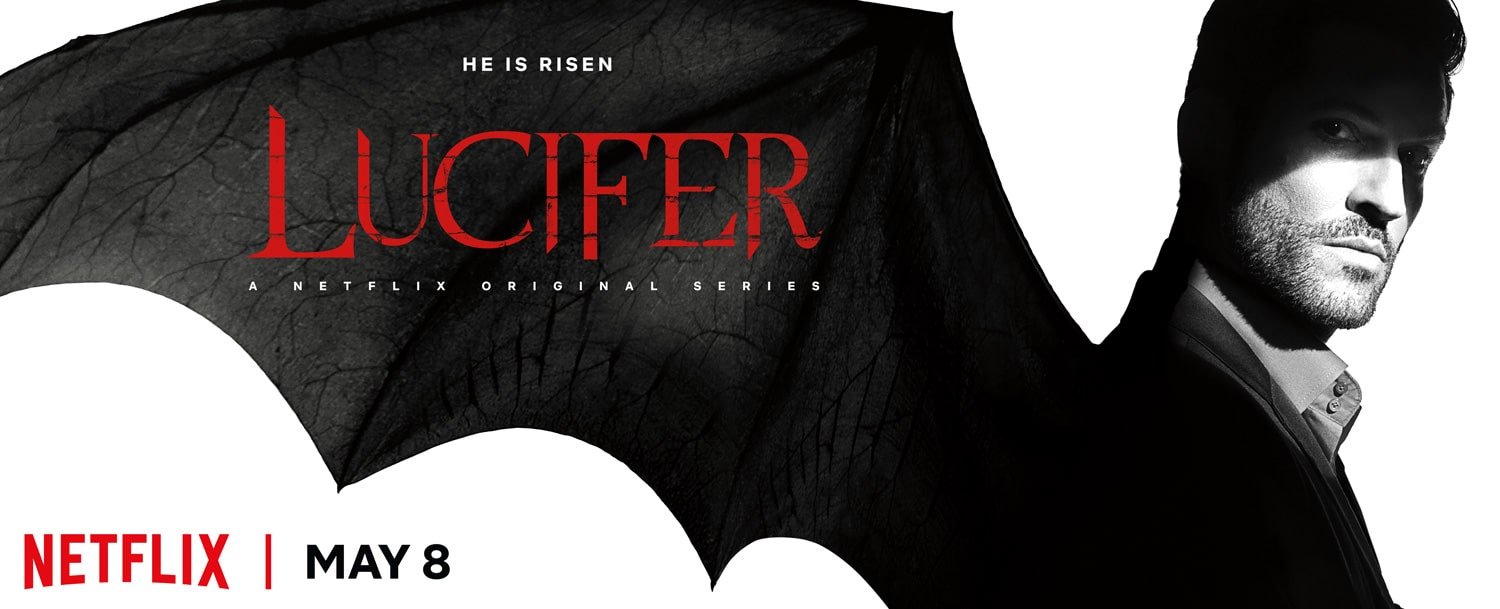Lucifer has always been an interesting show to me, all the way from its days on Fox to the move to streaming. It’s an adaptation of a comic book property that takes almost nothing from the comic character itself except for the titular character. The tone, the characters, the story, every arc, all of it is hand-crafted by the show and those who work on it, taking little if anything from the source material.
The first three seasons of the show aired on FOX, taking the typical approach to TV (The first season was 13 episodes, the second was 18 and the third was a full 26 episodes), and often suffering for it in that arcs and storylines could often feel somewhat stretched out. It’s the same issue that shows such as The Flash face, they begin to create and weave an interesting narrative through-line before having to veer away from it to fill a chunk of episodes in the centre of the season.
Thanks to this, while Lucifer Seasons 1-3 were good, they began to lose me less and less throughout, until eventually I simply dropped off at some point during season 3 (I have since went back and rectified what I was missing). Then, Lucifer was canceled by the network in May 2018, due to what executives claimed to be a ratings-based decision. But the fandom wouldn’t let the show die, and carried out an online campaign to try to get somebody somewhere to pick up the show. Luckily, their prayers were answered and in June 2018, Netflix announced that it had picked up the show for a fourth season of episodes. It’s here that my fandom of Lucifer returned, and it’s here where I returned the show after becoming tired of it. It’s here that I think Lucifer becomes something more than what it was, where it becomes something seriously special. It’s here where I think that streaming saved the Devil.

To exemplify what I mean, it’s important to discuss what Netflix actually improved upon with the show. Lucifer Season 4 had an excellent idea to start in such a way that it could be your very first episode of Lucifer and you wouldn’t be missing much in terms of context. You could jump in at the start of the season and just watch it from there without ever going back to the previous three seasons unless you really wanted to, akin to a soft reboot. Netflix also ordered a shorter episode run for the fourth season of Lucifer, only ten episodes as opposed to the rather excessive episodes of previous seasons. In May 2019, the full season was released on Netflix worldwide, and it blew everything so far out of the water. Tom Ellis and Lauren German have always had chemistry in the show, but somehow it goes to a whole new level here and is unbelievably good. It’s in the supporting cast that the show really shines in how it has changed in the streaming era, though.
While previously the supporting cast was given a decent amount to do and some decent material to work with, once the show trimmed the filler episodes and went to Netflix they got a lot more to do. I mean, you only need to go back and look at how much Amenadial (The angel brother of Lucifer) gets to do in the first season before comparing it to the level of character development and material he gets in season 4 to understand the angle I’m coming from here. The season also introduced more characters from biblical mythology, such as Eve (THE Eve, for the record), and gave them interesting things to do within the confines of the story arc (Lucifer’s burgeoning relationship with his partner, Chloe, and how her knowing that he’s the Lucifer from the stories affect their dynamic).

Lucifer Season 5 decided to go one step further, and increased the episode count to 16 episodes, partially due to the original intention of the showrunners and Netflix themselves to make this the final season of the show. To make up for the extra length though, and to avoid any possible examples of filler episodes. The first half of the season focused on Lucifer’s conflict with his twin brother & Archangel, Michael, while the second half of the season focused on the arrival of God himself (played wonderfully by Dennis Haysbert.
You may recognise his voice from 24, where he played the President throughout the first five seasons of the show). It’s here that the show evolved into something else entirely, it’s like Netflix looked at the first half of season 5 and season 4 and said “That was good, but now for something new”. Lucifer becomes a family drama, focusing on the dysfunctional relationship between Lucifer and his father, while never losing sight of any already present storylines and character growth. Chloe and Lucifer get more depth and development than ever before, and characters such as Dan (Kevin Alejandro) get entire episodes entirely centred around them. With a thrilling final episode, Season 5 shows that Lucifer has more tricks up its sleeve before it ends, going out with a bang rather than a whimper and showing the world how to truly do an ending.
Lucifer is a rare example of a show getting better as it goes on, of a show improving magnitudes in the years since it began. It’s sad that Season 6 will be the final season of the show, but perhaps that’s a good thing. A show that finishes on its own steam will always have a better and more definitive ending than one that eventually runs out of fuel. Of course, I could always be wrong. Perhaps the ending of Season 6 will be awful, and won’t land at all. But at this stage, I have such faith in the cast and crew of the show that I believe they could turn anything into solid gold.
You can catch Lucifer Season 4, Lucifer Season 5 and Lucifer Season 6 (streaming on September 7th) on Netflix. If you want to watch the first three seasons of the show however, why not go over to Amazon Prime?


